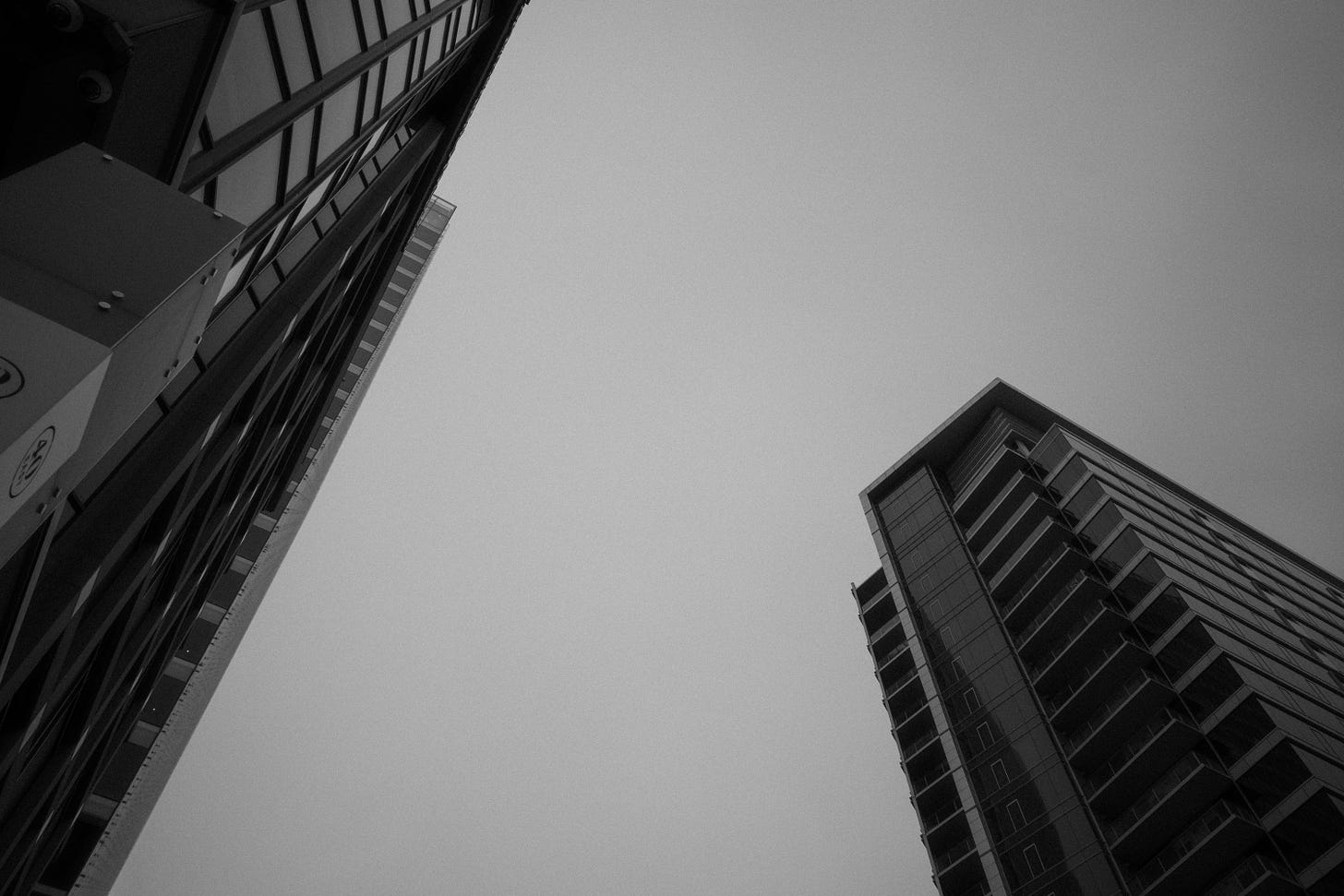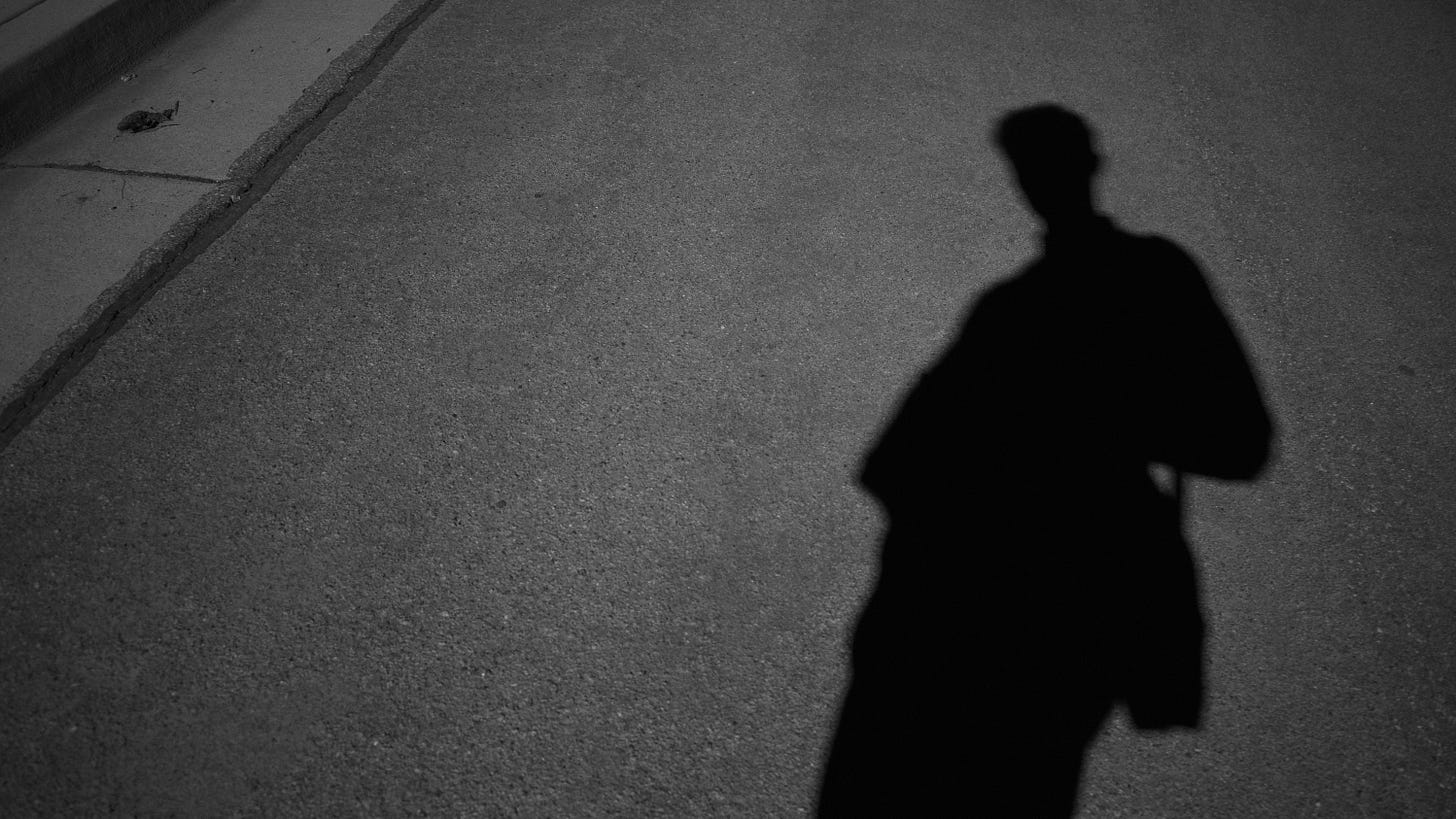Literature without Gimmicks
Plus: quotes on writing; piano & orchestral audio snippets; photographs
( , the Open Letter is down below.)
This month has been filled with family reunions, making new friends, and figuring out how to use all the time on my hands. I'm happy. I’m eating meals on my front steps in the morning sun, I’m reading, I’m doing some bike riding. June is nice.
Why Write?
Here are quotes from books I’m working through.
Writing sharpens your senses:
“As we live in cities, cut off from the observations of nature, as we indulge more and more in passive entertainment, our senses become dulled and unresponsive. But you, as a practicing writer, can sharpen your sense and intensify your responses and your receptivity by exercising a constant awareness of the physical world around you, by opening your attention to everything that impinges meaningfully on your mind and recording it in your journal. This doesn't mean attaching a significance to all experience indiscriminately, but it does mean valuing the ability to respond” (Becoming a Poet - Ruth Whitman, 16-17).
Writing creates depth and insight. It sharpens your thinking:
“Analysis taught me to think. Taught me to use my tendency to object to articulated ideas on my own ideas, taught me to use doubt, to examine my own speech for its evasions and excisions. It gave me an intellectual task capable of transforming paralysis—which is the extreme form of self-doubt—into insight” (Proofs and Theories - Louise Glück, 12).
“I cultivated a capacity to study images and patterns of speech, to see, as objectively as possible, what ideas they embodied... The longer I withheld conclusion, the more I saw. I was learning, I believe, how to write, as well: not to have a self which, in writing, is projected into images. And not, simply, to permit the production of images, a production unencumbered by mind, but to use the mind to explore the resonances of such images, to separate the shallow from the deep, and to choose the deep” (Proofs and Theories - Louise Glück, 12-13).
Open Letter on Defining Literature
Robin Waldun, a writer on Substack, has invited people to write open letters. Click to read more about his work and his idea.
Dear Robin,
I'm starting to form an opinion (dangerous, I know), and I sense that my ideas aren’t tight and sound. I guess that’s a point of dialogue in open letters: it helps me think through things and realize where I’m making sense and where my thinking isn’t solid. Hopefully that kind of refinement happens over our correspondence.
I'm realizing that I don't enjoy gimmicky stories. I'm thinking of “gimmick” in the context of magic tricks. For example, a deck of cards may have a gimmick: something about it that allows the magician to perform a trick without giving itself away. To the viewer, the deck pretends to be something other than what it is. It appears normal. A stripper deck, for example, is made of cards that taper. The top of the card is slightly wider than the bottom. Thus, if a card is inserted into the deck oriented opposite the rest it is retrieved by sliding your fingers along the edges and catching the difference in width.
“Is this your card?” Applause.
In magic, gimmicks make sense; in literature, I don't like the trick.
Stories that are gimmicky are stories whose characters seem to be human but in reality are vessels for an author's message. Last week I read Fahrenheit 451 to decide whether or not to include it in my sophomore curriculum next year. The narrative felt like a gimmick. It claims to be literature when it is really a vessel for Bradbury's philosophies/ideas (to be clear, I'm not taking issue with what the book teaches but that its primary purpose is to convey a message rather than be a piece of literature).
Captain Beatty—a sort of antagonist—isn't a convincing character/human to me. He is first and foremost the point of view with which Bradbury spars. In this way and others, the book is like a gimmicked deck: it claimed the status of literature while actually being a critique on society and culture.
If you have ideas to convince me of, stick with nonfiction and flesh them out with clarity and thoroughness. Don't package them into a story and call it literature when it is a planned message.
Now…
Maybe I’m going too far. This could all be a misrepresentation on my part. Am I forcing Bradbury’s story into something it isn’t? Science fiction as a genre is maybe less about being literary and is more about writing extremes in the future in order to comment on society today. If this is the case, I need to reset my expectations and read compassionately: read something for what it is and what it claims to be, not for what I want it to be.
All of this is to say that I'm realizing—as someone who doesn't often have strong opinions—that I feel literature is at its finest when it acts like photography or painting. Using words, the best literature captures and paints the human heart and experience. It doesn't do it for the sake of a moral or message, it's not a trick where characters or plot points exist solely to elucidate a philosophy.
I’m reminded, in part, of what Tim O’Brien writes in The Things They Carried:
“In a true war story, if there’s a moral at all, it’s like the thread that makes the cloth. You can’t tease it out. You can’t extract the meaning without unraveling the deeper meaning.”
The best literature has meaning deeper than a moral and is an aesthetic experience. Writing for the sake of a lesson or exposition unravels the experience for me and feels inauthentic. It feels like less than what it could be.
Cheers, Robin. Thanks for reading.
Music
Here’s a snippet of a piano piece I’ve been working on:
Yesterday I decided to make it orchestral.
I’m still deciding if I like the orchestral version enough to develop it. Something about the solo piano feels nice.
Photographs
Conversation in Car During Rain; Washington Square Park; Morning Canyon; Downtown SLC; Shadow Self-Portrait; Drive Home
Goodies
A Thought from James Clear ☞ “The most invisible form of wasted time is doing a good job on an unimportant task” (source).
Intellectual Humility is a Cop-out ☞ In my previous job, I worked to incorporate the concept of intellectual humility into the university freshmen writing course. This article was a needed critique and refinement on the concept.
The Rungs ☞ Read it. Also, check out the
Substack or podcast.Cheers!
p.s. I’m one third of the way through summer break.











I loved the Louise Glück quotes (The longer I withheld conclusion, the more I saw!!! Incredible...) And though the orchestral arrangement is lovely, I prefer the piano version. It feels like the voice of the piano is clearer and thus, so is the song it’s singing (if that makes sense 😅.) I enjoyed The Rungs poem so much that I read it twice; I Love when so much is said with so few words ♥️.
Thank you!
P.S. I did not like Fahrenheit 451 in high school...
This is the first time I've stumbled across your SubStack - and I am so glad I did.
"I feel literature is at its finest when it acts like photography or painting. Using words, the best literature captures and paints the human heart and experience." I LOVED this reflection, though I do a believe duality in literature is possible; the best literature can capture reflections on morality and society without coming across as the primary motive. It's a fine line I think. In saying this, I have a feeling this will be on my mind for the next little while.